A little more than four years after receiving their first combat-coded F-35A Lightning aircraft, Hill Air Force Base‘s fighter wings have reached full capability.
The term describes a set of focus areas within the 388th and 419th Fighter Wings: fully trained pilots and maintainers, a full complement of 78 aircraft and the mission and support equipment needed to fly.
According to the US Air Force:
“While the designation of full warfighting capability is an important milestone, the wing has been combat capable since the Air Force declared initial operational capability in August 2016. Since then, the wings have participated in several large combat exercises, deployed twice to Europe and once to the Pacific and supported two Middle East combat deployments, including one short-notice tasking.”
“Every training opportunity, exercise and deployment we’ve completed over the past four years has been a key stepping stone in reaching full warfighting capability,” said Col. Steven Behmer, 388th Fighter Wing commander.
“This is just the beginning of sustained F-35A combat operations and we will remain focused on staying ready to deploy whenever, wherever we’re needed.”
When the first aircraft arrived in 2015, the goal was to fully equip each squadron with 24 primary assigned aircraft and six backups by the end of 2019.
That was realised in December with the delivery of the 78th jet, say the US Air Force.




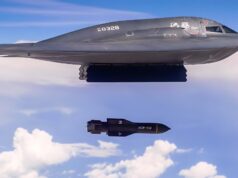
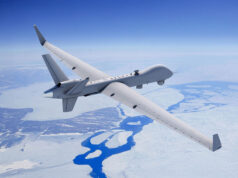



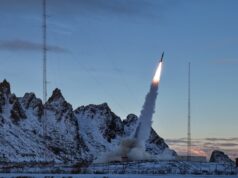
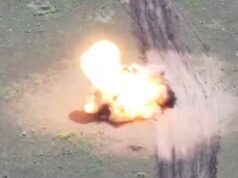

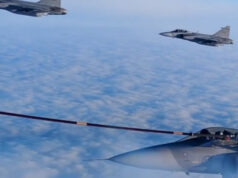

First I like the models ass in the advert, there are a few adverts. Buy necessary for extra income to help I hope it helps
Shocking really that they have managed that in 4 years and in that time we have a single squadron.
HMG needs to pull the finger out and start buying these quicker! 10 years from now we probably still wont even have our 4 operational squadrons ready.
Treasury needs to give a decent cash injection into MoD so we can actually order all 138 jets instead of just bleating about being committed to it, and accelerate the buy rate to get us all 4 squadrons plus OCU stood up by 2025. Hell, if we can accelerate the buy rate we could even get a 5th combat squadron, or even a 6th!
In the time it takes we could train new pilots.
Don’t we have two squadrons and 48 expected in service by 2023. I would rather we had 96 in service by 2027, I’m not sure how likely that is though.
How do we speed up the build rate when we do not build them ourselves? How do we fit in our planes inbetween the Americans building theirs?
The later we deliver our own the cheaper the later batches are.
It’s not the build rate, it’s our own painfully slow procurement rate, stretched out to minimise cost each year to keep within budget. Same as with our ships.
We could easily get 40 planes by the end of the year from LM if MoD so wished.
Steve R,
Agree completely, the procurement rate is the responsibility of each of the Partner Nations and FMS customers, not the US or LM.
It’s worth looking at Lots 12-14 (2020-2022), 478 aircraft in total. The US order is for 291, Partner Nations 127, and FMS customers 60 (the breakdown of variants is: 351A, 86B and 41C).
Here in Oz for example, the RAAF has received 18 x F-35As so far in previous lots (2+8+8), it will receive 45 x F-35As from Lots 12-14 (15 per lot), and 9 from Lot 15, bringing the total to 72 by end of 2023.
For the RAF, there may well be some ‘spare’ capacity at LM for an increased production rate (remember that Turkey would have had production slots reserved prior to be kicked out of the program).
Cheers,
JohnN
I think as an overall project it’s difficult to compare A availability and B availability to acquire, they are very different with different timelines. Initially too the fact that the aircraft generally, A B C variants, are still being updated to reach their true proposed capabilities a slow take up rate is logical from a cost/capability profile but I do agree the overall spread does seem very slow as we move through the decade.
and if we did buy them all faster, how many more would need expensive upgrades to bring them to parity with the current version?
in some ways thats the good thing about our procurement rate….
Theres pros and cons to the slow buy rate; I guess it comes down to having the more advanced versions, cheaper, later on, or having more now that can actually present a decent offensive capability – especially a carrier-borne capability- should we need it.
My preference is to get more sooner so we can stand up a credible F35 force. The slow rate can have the advantages of the more advanced versions, cheaper, later on, but balanced against that is that until then we have no credible F35 force, meaning that more work is done by our Typhoons and they will wear out sooner. Not a problem if we could buy 40 or so new Tranch 3s to replace the older airframes as they wear out but that wont happen.
Fearlesstunafish,
Mate, if a nation sits on its hands and ‘waits’ for ‘Block updates’ to end, then you’ll never procure any aircraft.
The current standard is Block 3F and all aircraft currently being delivered are to that standard (from memory all airframes from at least the beginning of 2019 are 3F).
Here in Oz for example, all 18 airframes delivered to date have been delivered in 3F standard (some of the earlier airframes required upgrades and they have been done). The next 54 airframes for the RAAF, to be delivered between 2020 to end 2023, will all be in 3F too.
Around 2023ish Block 4.1 (followed by 4.2, 4.3 and 4.4) will happen, 4.1 will be a big one for Norway, Japan and Australia as it will add the JSM anti-ship missile capability.
Various other Block updates will add capabilities for various nations and across the board too, it will be an endless process until retirement.
All modern combat aircraft these days (not just the F-35), are very much software driven, not much different to a smart phone.
Cheers,
JohnN
IIRC Block 4 is also important for the UK because that’s when Meteor and SPEAR 3 get supported. If we pushed ahead with earlier block purchases then there would be additional costs later to upgrade as fearlesstunafish suggests. In addition the UK would presumably have to procure stocks of non-preferred weapons in the interim to have the aircraft actually be useful/capable. If the UK chooses NSM/JSM as an interim ASM solution then Block 4 would enable the option to wing carry these too.
So IMO it makes sense for the UK to limit pre-Block 4 purchases.
I would have thought the smart play would be to continue in investing in Typhoon until the arrival of Tempest thereby insuring the production line and skilled jobs remain open while future upgrades designed for Tempest can be added on to Typhoon?
Equally, new sensor suites are coming online as well as the ability to add conformal fuel tanks, improved thrust, thrust vectoring, helmet and targeting pod upgrades, further future-proofing it well into the 2030s.
What amazes me is why we are not investing in longer-range munitions to defeat potential threats whether it be from land, sea, or air thereby keeping our pilots and aircraft safe.
An interesting post on hypersonic missiles and large naval fleets, even more so if we include China. What land-based defences do we currently possess to defeat such a threat should it arise?
https://edition.cnn.com/2020/01/09/europe/russia-putin-hypersonic-missile-test-intl/index.html
Purely on a side note, It would be interesting to find out how close we are to the final airframe design of Tempest which could be used in conjunction with current technology built for Typhoon creating an earlier Tranche 1 version and discontinue building Typhoon airframes?
Just a thought!
I’m curious too though I guess it’s too early to tell. Didnt MoD or BAE it might not actually end up looking like the mock up they revealed?
Hopefully it will be larger and able to carry more weapons internally than the F35; doesn’t need to be an absolute missile truck like the Typhoons but enough to have an effective payload. Say 8 air to air missiles, so similar to F22.
I’m also curious to know how many we will order in the end. Would be nice to get at least the same number as the Typhoons they will replace.
Agreed Steve R, My thinking was to use this airframe instead of the current Typhoons and use the tech we already have.
This would effectively be a super Typhoon, or, a Tranche 1 Tempest if you see what I mean helping to increase interest as well as sales while replacing our current fleet of Tranche 1/2 aircraft.
As the earlier models could essentially be updated at a later date, we could bring forward the Tempest programme and have the perfect testbed at the same time.
A low observable platform is all we really need at present with increased range and a decent internal payload as you say!
To me, it seems pointless spending more money on F35’s other than what’s required for the carriers.
I think by now we must have a pretty good idea what the RAF requirement would be.
The aircraft shown would have been on the drawing board at least five to ten years earlier.
https://www.youtube.com/watch?v=HiFIw8OkTWk
I always wondered why did they have that upside down?
Funny you mention a “Super-Typhoon” as an early version of Tempest. I was wondering earlier today how feasible it would be to build a “stealth Typhoon.”
Well, not actually full on stealth, but something like the F15ES Silent Eagle; modified to carry missiles internally and other stealthy features.
For the expense, probably not worth it though.
Unless, as I mentioned, we divert funding away from the F35 programme (F35A RAF as opposed to B RN) and use the current tempest airframe to house the internal parts of the Tranche 3A with increased power from the fitting of the EJ230 engine.
Tranche 1s will need replacing (54) and quite possibly Tranche 2s rather than upgrade them, so financially as well as operationally it might make sense to go down this route?
2 reasons we are not investing: money (or lack thereof) and the fact that for the past 19 years it’s all been about the war on terror.
We have been focused so much on how to kill Taliban et al, that we have forgotten about potential threats from other states such as Russia or China.
It would be the smart thing to do. The USAF is keeping the Boeing fighter line hot with a requested 15 ship F15EX purchase in this defense budget (with more to be procured). The aircraft is Gen 4.5 – just as the Typhoon is and highly capable. More critically it will do as you suggest. maintain talent and industrial capacity for the upcoming Gen 6 AD program.
Cheers
You have basically answered your own question Nigel. The answer to most of the above, is yes, we are still investing heavily in Typhoon, the integration of Storm Shadow, Brimstone 2, Meteor are ongoing, as well as Striker 2 HMS, and a whole host of other avionic upgrades and the new E-scan radar. And yes the Typhoon will be used as a test bed if you like for Tempest capabilities. As for Hypersonic weapons. I would take any news about those with a massive pinch of salt. I think both Russia and China are still many years away from being able to actually hit anything with one. ?
The Future Cruise/Anti-Ship Weapon (FC/ASW) program at MBDA in conjunction with the French is addressing long range munitions with the plan for introduction late 2020’s early 2030’s.
There is some debate between the UK and France for a stealth vs. hypersonic platform, MBDA illustrated both as possible candidates for Tempest during 2019. The FC/ASW seems to be ~2x the missile mass and warhead mass of the NSM/JSM and perhaps 2x the range. So if the UK run with NSM/JSM as an interim missile its possible it will also co-exist with FC/ASW which is in a different class.
And if we invested in this now, ten years could be cut to five no doubt.
Always the problem, deliberating instead of building, something China doesn’t suffer from.
If only the government realised how we could be world leaders and shelled out the monies to invest in these projects….
Not sure I understand your point? We are investing in this now. If it achieves IOC by 2030 that will be fast by modern missile development schedules. The JSM program started in 2009 and has IOC planned for 2021 and fully operational by 2025, and the JSM has the advantage of leveraging the NSM.
We are investing in this now, but what happens after Brexit?
Rather than relying on the joint cooperation of the French who have a habit of dropping out of joint ventures, we should be looking to develop this type of long-range munition ourselves.
If it is not down to different Countries requiring different outcomes from the project, delaying the time schedule to late 2020’s early 2030’s, I stand corrected.
“But after the UCAV and FCAS cooperation failures, another cancellation of a French-British joint program could virtually mark the end of the industrial cooperation part of the Lancaster House agreement.”
https://www.navalnews.com/naval-news/2019/07/will-the-french-british-fc-asw-missile-program-survive-a-hard-brexit/
I don’t see Brexit as material. The pre-election government recently committed to Boxer and Type 31 and started the request for an interim ASW weapon, so it seems unlikely they would cancel this program for financial reasons. Also given the out of service date for Storm Shadow and capabilities currently missing in other areas such as sub-launched and VLS launched variants.
Certainly past collaborations with the French have been problematic but MBDA seem to have been successful with Meteor and fully committed with Spear 3 inc the EW variant, so missiles for UK use seem to have been a positive. FC/ASW is clearly needed by both parties and by others in Europe and beyond, so there is arguably a rationale for both stealth and hypersonic variants, rather than just a single program focused on just one of the two options.
Fingers crossed!
As for “unlikely they would cancel this program for financial reasons.”
With the amount of money we appear to be wasting (5x Type 31s) who can really say.
“Trident: MoD upgrade of Britain’s nuclear weapons system over-budget by £1.35bn, watchdog warns”
https://news.sky.com/story/trident-mod-upgrade-of-britains-nuclear-weapons-system-over-budget-by-1-35bn-watchdog-warns-11905734
Wasted? Here’s a fine example…
https://www.thedrive.com/the-war-zone/31286/the-saga-of-the-agm-129-cruise-missile-that-was-basically-a-stealth-jet-designed-upside-down
I’m fairly sure the USAF is ruing this decision – along with the cancellation of the F22…
Cheers
Agreed Helions, the guys with the trailer must have had one hell of a wake-up call!
With a few upgrades using today’s tec and even without it, the missile would have undoubtedly reached it’s intended target.
Is that us wanting stealth and the French wanting hypersonic, or the other way around?
UK-stealth and the French super/hypersonic. The naval News article Nigel links provides a good read on the program.